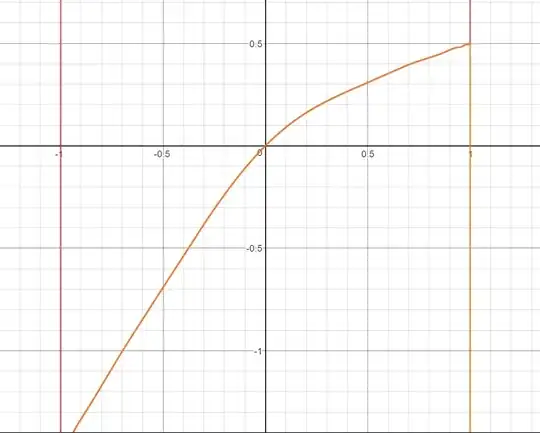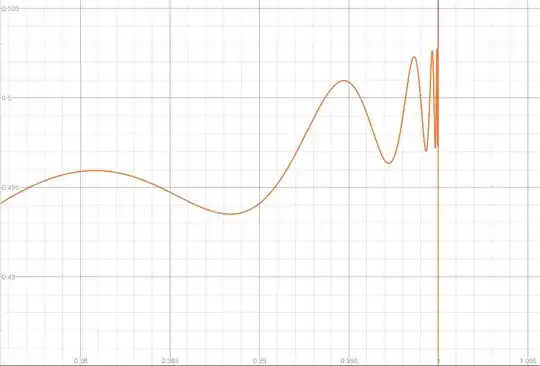I found this interesting function defined by the following infinite series:
$$g(x)=\sum_{n=0}^\infty(-1)^nx^{2^n}$$
And I noticed that it followed the functional equation $g(x)=1-g(x^2)$. I was interested, particularly, in the following limit:
$$L=\lim_{x\to1^-}g(x)$$
And assuming it exists, the functional equation yields
$$L=1-L\implies L=\frac12$$
Which, at first look, the limit appears to exist.
However, upon closer inspection, convergence gets a little sketchy...
Can we determine if the limit converges?


For $|x| = 1$, the partial sums of the series form the alternating sequence $-1, 1, -1, 1, \ldots, $ hence fail to converge.
– avs Dec 08 '16 at 19:22